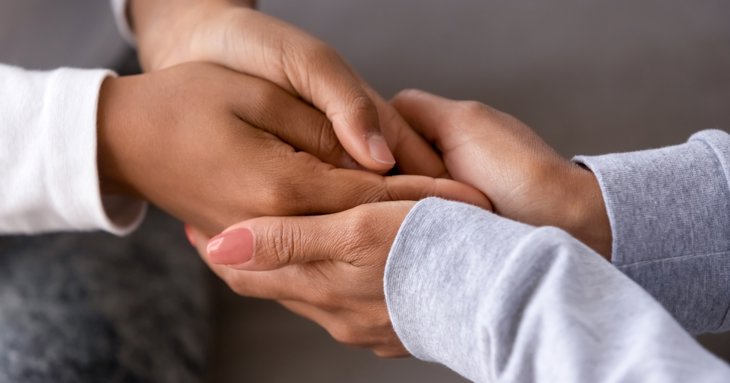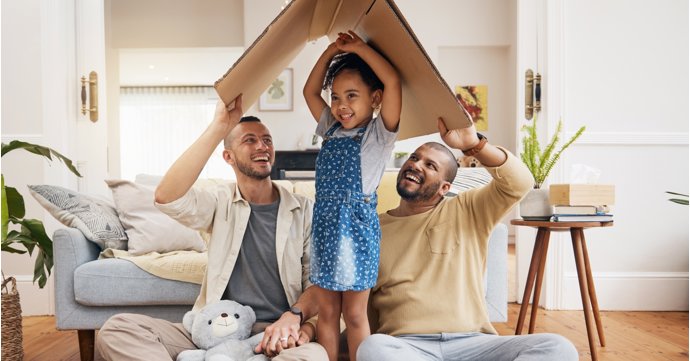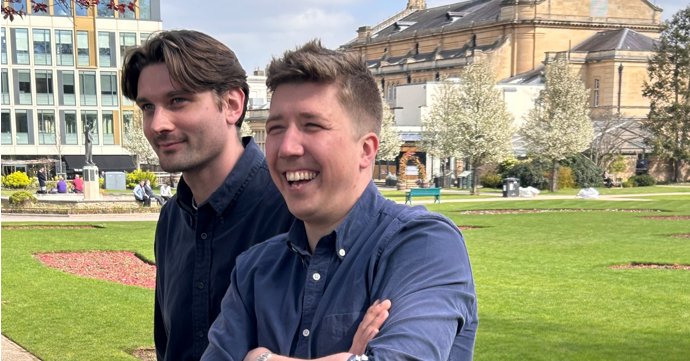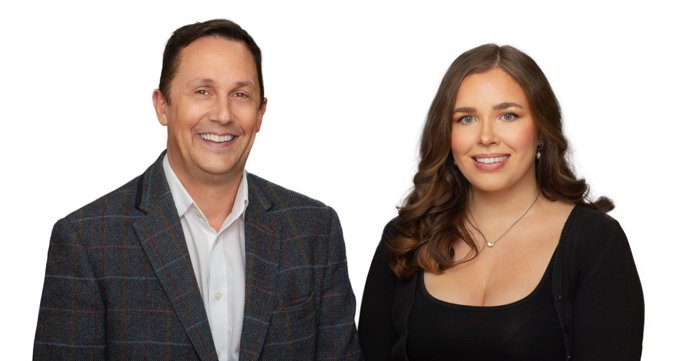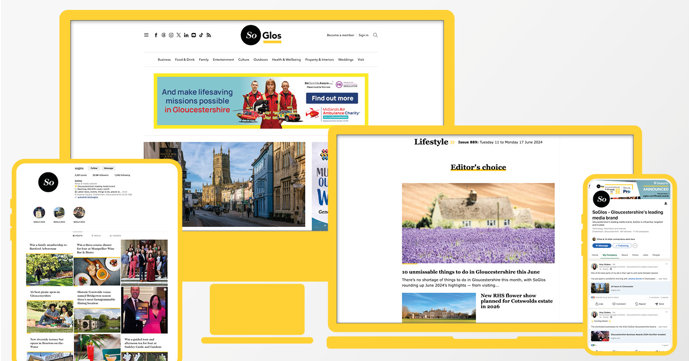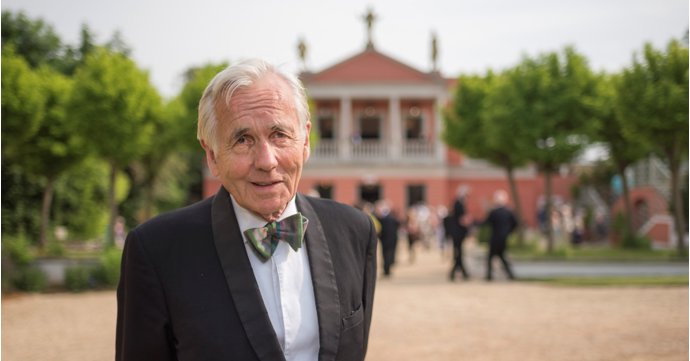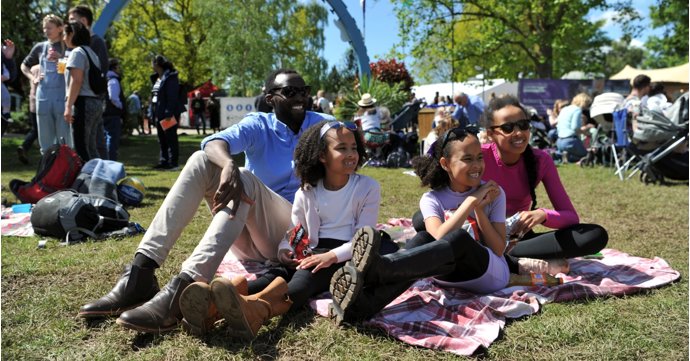At 66 years old, Linda has been fostering teenagers with Gloucestershire County Council Fostering for the past 14 years, promising that as long as she's fit, healthy and enjoys it, she'll carry on.
SoGlos caught up with Linda to understand what inspired her fostering journey and gain insight into what it takes to help to support young people in becoming the best version of themselves, alongside providing safe and secure homes.
What inspired you to begin your fostering journey?
Well, there were a number of reasons. Partly because 14 years ago, I had a student on a Friday afternoon of a bank holiday weekend, come to me and say she thought she was going to be chucked out of her home that weekend and she didn't know what to do.
I thought, well, I'm not quite sure what to do with this, and I did something which is very unprofessional as a teacher, but I gave her my number, and said, 'if you are stuck, let me know — I've got a spare room you can stay in over the weekend, we'll sort it out on Monday.'
And so I thought, well, there must be organisations that can help. And I looked into it. And I thought, well, fostering is a way forward for this. So it was something I looked into and decided I wanted to do.
When I first started fostering, I was working full time. I taught teenagers at the time, I had a teenager at home as well so it was the age I knew best. But I also needed somebody who was, if necessary, capable of coming home on their own, or getting to school on their own without having to drop me drop them off every morning and pick them up at night.
So that's why I went into teen teens rather than other ages — it seems to be the age that they found most difficult to place with foster carers.
You said that you have a teenager at home yourself, how did they feel about you deciding to foster?
She seemed fine about it. I mean, she did joke: 'You may have thought that I was terrible until you started fostering.' I think it put everything into perspective, and maybe put her in a slightly better light!
The other thing I learned was to not have children of the same age as my daughter because there was always a bit of conflict or competition between them when I did that, so I always tried to get somebody either younger or older. That seemed to work better. She was fine about it.
The one thing she said was, 'well, what happens if you want to adopt them full-time?' And I joked, 'well, they're teenagers, why would I?!'
But really, the only other thing she worried about was what would happen if somebody arrived who was allergic to cats as she thought we might have to get rid of our cat. I reassured her that that wouldn't happen.
What would you say are the challenges of being a single carer?
I'm capable of looking after young people of my own. I think, if anything, it just reinforces the fact that I have a strong personality and I can just get on with things without the need of somebody else being there. But I have to say that there have been times when I've fostered when it has been very challenging.
Being a single person, I'm very lucky, because I've got a network of friends that are very good at just venting to. One of the things I would say about fostering is you do need a network of people who understand you and that you could go to if you need them.
That leads me onto my next question, how has GCC Fostering helped to support you throughout the process?
Well, there is a lot of training available on every aspect. Since I deal with teenagers, we covered things from self-harming and suicidal thoughts, to things like sex. That sort of thing comes up a lot, so there's a lot of training available to help you with that.
We have a support group every month, which is brilliant, because that is an opportunity to go and speak to other like-minded people who will understand if you've got problems. And if there is something particular that you're struggling with, there's got to be somebody at the meeting to go, 'oh, yeah, I have that. This is what we did...' which is really good.
I've got a social worker who I can always pick up the phone to if I need to if there's a problem. So there's always somebody who's got your back if you need it.
I am constantly banging on about this, but I think the difference between fostering for a local authority and fostering for a private agency is that you get masses of support in a way that you probably don't get through private agencies.
Do you have any positive stand-out moments from fostering that you would like to share?
When people ask, 'why do you do this?' lots of brilliant moments spring to mind. For example, I had a young lad who left me at 18, went to the University of Gloucestershire and then went on and did a master's degree. He did really well academically, which can sometimes be harder for children in care, so that that was wonderful.
Another one that stands out is a placement that broke down quite dramatically. It was a young lad who was into drugs and in a gang. And I think he got himself into a lot of trouble and I think he was genuinely scared for his life. So he deliberately allowed the placement to break down because he wanted to get out of Gloucester because he was scared.
I'd said to my social worker, 'I really feel I failed with this child because I thought I could help him and clearly couldn't.' And her first words were, 'well, he didn't go to prison while he was with you', which is very true and we both knew that that was a likely possibility. But then, a couple of years later, I got a text wishing me a happy Christmas saying that they'd been past the house a number of times and never knocked on the door because they didn't think I'd ever want to see them again.
I replied, 'of course I would! Why would I not want to see you being successful?' And he's now with a partner, he's got a baby, he's got a full time job and doing really well. And, you know, I'd like to think that indirectly, I have been part of that journey that's gotten him to that point.
That was lovely. Because it was really one of those placements where I thought I failed. Whenever a placement breaks down, you do reflect on what could have been done to make it better, or what could have been done to improve it or to keep them?
After a placement breaks down, how do you move on to the next one with an open mind?
Well, I think you have to remember that none of this is personal. If they are being challenging, and in that they do get very personal, it's because they're teenagers and that's what teenagers do — but it isn't actually personal.
They have got so much baggage that they are carrying, it's no wonder that they're angry with the world and with adults who've let them down, right? That's what's happened to them all their lives and they're coming to you thinking that it's going to happen again.
A lot of people in care try and actively make the placement break down because of that. The breakdown is then on their terms, not yours. There's all that to consider, so I never sit there thinking: 'Oh, they're doing it because of me.' They'll do it because they're just angry with the world.
What advice would you give to others considering fostering?
I would always say, do it, give it a try. I think if you've got the time and the capacity, embrace the thought that you can make a difference to somebody else's life. There are a couple of times that I genuinely think that I may have saved a child's life by doing the fostering and to be able to go to my grave with the thought that these people are alive today because of something that I've done is just a wonderful thing to be able to say.
Other than from fostering, I can't think where else I might have experienced that. So anybody considering doing it, I would certainly say look into it, speak to people who do it, see if it's for you.
And finally, just to make people aware that whatever their circumstances or whatever their relationships are, there is a place for everybody in fostering.


